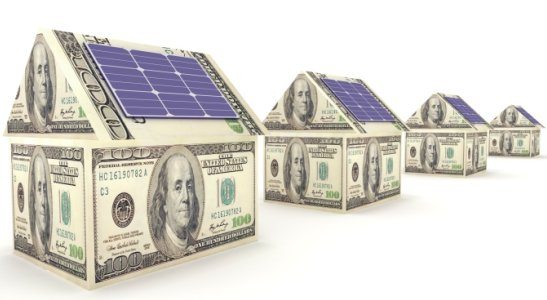Solar rebate customers may be faced with a higher renewable energy tariff that will supplement the solar rebate fund to help other customers install solar equipment.
Previous articles in the Green Scene section focused on the many available rebates for purchasing solar equipment for a home or business. These articles also focus on the savings that can be accrued after switching to a greener energy source. This post is a summation of the Dec. 20 Arizona Republic article and a personal commentary on the decisions to be made concerning a renewable energy tariff for rebate using customers.
The Renewable Energy Tariff
Before you switched to solar (or if you haven’t yet), you are charged with a renewable energy tariff. The tariff price is based on how much energy you use, so if you have installed solar energy equipment, you buy less energy from your utility company. Therefore, you reduce your monthly tariff. The APS renewable energy tariff is capped at $4 a month for residential customers that have not transitioned to solar energy. If you have a solar system on your home, you pay approximately half that, or less.
Arizona Corporation Commissioner, Brenda Burns, thinks it’s fair to charge those who used solar energy rebates a few extra dollars each month so that those who haven’t taken advantage of the solar rebates can have that same opportunity.
The reasoning behind this idea is that more people are going solar and fewer people are left paying the renewable energy tariff. So the Arizona Corporation Commission wants to ensure that there will be money in a fund to continue allocating rebates to customers that want to go solar.
It becomes an issue of fairness when people who are renting or those of lower income are paying the renewable energy tariff to its extent and supporting higher-income homeowners, living in affluent neighborhoods who want to use rebates to install solar in their homes, Burns says in the article. Burns also says that the implementation of the tariff will not be retroactive to those who have used rebates to install solar equipment in their homes, only those who utilize the rebates in the future.
I’m sure this has a lot of people asking, “Why should this come out of my pocket?”
Renewable Energy Tariff’s Effect On Solar Policy
Critics of this idea include solar companies and say that this is an attack on the industry. Arizona Corporation Commissioner, Paul Newman, wonders from where this idea stemmed in the first place and feels that it is a punishment for customers who were the first to make that transition to solar energy.
Different levels of rebates are available, but let’s say a customer utilizes a $4,000 rebate to install a solar system in their home. That person is already spending thousands of dollars to put this system on their roof; the rebate was a welcome relief and an incentive.
The political alignment with the move to go solar was constructed to make it easier to make the change, and by monetarily inviting homeowners to do so persuaded them. Now the policy with solar is still there, but it isn’t as motivating to homeowners.
I’m all for a greener future, and I love the idea of getting our power from the sun, but to entice homeowners with rebates and then make them pack back the rebates is comparable to false advertising.
In my mind, a rebate is a discount on a product that you don’t have to pay back. So, calling these solar rebates isn’t necessarily true. It’s like a loan that you borrow, but you pay it back interest free. And the next question is, how long? How long do clean-energy users continue paying the full rate of the renewable energy tax? Until they have paid back the amount of the rebate they used? Double the amount of the rebate they used?
Should solar rebate customers pay the renewable energy tariff so more customers can take advantage of solar energy? Should the idea of the rebate be eradicated completely and allow individuals to purchase their own solar equipment? Should the money just run out, with the utility companies instituted an early bird gets the worm policy when it concerns the solar rebates?
We’d like to know what you think, let us know in the comments.




